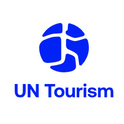UNWTO and ETC DataLab To Power European Tourism Forward
More than 30 countries in Europe have signed up to share knowledge and best practices with the aim of enhancing tourism competitiveness and supporting the recovery of the sector across the region.
The DataLab network, led by the World Tourism Organization (UNWTO) and the European Travel Commission (ETC) will provide a unique platform for sharing best practices, including know-how in data management and analytics. Users will also be able to share knowledge on the identification of relevant data sources, the use of big data, and the implementation of market intelligence systems. Europe's National Tourism Organizations (NTOs), National Tourism Administrations (NTAs) and other relevant partners are all eligible to be part of the DataLab, and representatives from more than 30 countries have signed up to be part of the first stage.
“The UNWTO-ETC DataLab network represents an innovative and collaborative way to grow the competitiveness of countries through market intelligence. This will help tourism organizations to be better prepared in light of an increasingly digitalized and data-driven sector,” says Zoritsa Urosevic, UNWTO Executive Director.
“By fostering knowledge sharing through the UNWTO-ETC DataLab initiative we will provide a platform for destinations to collaborate and build collective knowledge, which is crucial, especially in times of challenges. We trust this initiative will help our members minimize risks and increase competitiveness to build a tourism sector that is more resilient, innovative and sustainable in the years to come”, stated Eduardo Santander, Executive Director at ETC, at the network’s launch.
Filling the data gap
Market intelligence has become paramount to accelerate tourism’s sustainable recovery from the Covid-19 crisis, understand current and future trends, and make informed decisions. At the same time, there is a need to address data gaps, support the development of new digital tools and improve access to real-time data. According to a recent survey carried out by UNWTO and ETC on data needs and use, issues related to data access, cost and skills appeared to be some of the major constraints faced by NTOs and NTAs across Europe. In this regard, “the network will explore ways to better understand the current data requirements, enhance knowledge and strengthen capacity by learning from each other”, indicated Sandra Carvão, Director of UNWTO Tourism Market Intelligence and Competitiveness.
Enhanced collaboration
The network strengthens the collaboration between UNWTO and ETC in a critical area of knowledge and expertise for tourism destinations and is the outcome of an initiative proposed in 2021. A working group with representatives from Visit Flanders, Fáilte Ireland, Malta Tourism Authority, NBTC Holland Marketing, Turismo de Portugal and the Slovenian Tourist Board, guided UNWTO and ETC in the foundations of this initiative. Moving forward, the UNWTO-ETC DataLab will provide capacity building events for members in the form of webinars and networking sessions.
RELATED LINKS
About UN Tourism
The World Tourism Organization (UN Tourism) is the United Nations agency responsible for the promotion of responsible, sustainable and universally accessible tourism.
As the leading international organization in the field of tourism, UN Tourism promotes tourism as a driver of economic growth, inclusive development and environmental sustainability and offers leadership and support to the sector in advancing knowledge and tourism policies worldwide.
Our Priorities
Mainstreaming tourism in the global agenda: Advocating the value of tourism as a driver of socio-economic growth and development, its inclusion as a priority in national and international policies and the need to create a level playing field for the sector to develop and prosper.
Promoting sustainable tourism development: Supporting sustainable tourism policies and practices: policies which make optimal use of environmental resources, respect the socio-cultural authenticity of host communities and provide socio-economic benefits for all.
Fostering knowledge, education and capacity building: Supporting countries to assess and address their needs in education and training, as well as providing networks for knowledge creation and exchange.
Improving tourism competitiveness: Improving UN Tourism Members' competitiveness through knowledge creation and exchange, human resources development and the promotion of excellence in areas such as policy planning, statistics and market trends, sustainable tourism development, marketing and promotion, product development and risk and crisis management.
Advancing tourism's contribution to poverty reduction and development: Maximizing the contribution of tourism to poverty reduction and achieving the SDGs by making tourism work as a tool for development and promoting the inclusion of tourism in the development agenda.
Building partnerships: Engaging with the private sector, regional and local tourism organizations, academia and research institutions, civil society and the UN system to build a more sustainable, responsible and competitive tourism sector.
Our Structure
Members: An intergovernmental organization, UN Tourism has 160 Member States, 6 Associate Members, 2 Observers and over 500 Affiliate Members.
Organs: The General Assembly is the supreme organ of the Organization. The Executive Council take all measures, in consultation with the Secretary-General, for the implementation of the decisions and recommendations of the General Assembly and reports to the Assembly.
Secretariat: UN Tourism headquarters are based in Madrid, Spain. The Secretariat is led by the Secretary-General and organized into departments covering issues such as sustainability, education, tourism trends and marketing, sustainable development, statistics and the Tourism Satellite Account (TSA), destination management, ethics and risk and crisis management. The Technical Cooperation and Silk Road Department carries out development projects in over 100 countries worldwide, while the Regional Departments for Africa, the Americas, Asia and the Pacific, Europe and the Middle East serve as the link between UN Tourism and its 160 Member States. The Affiliate Members Department represents UN Tourism's 500 plus Affiliate members.
UN Tourism Communications Department
+34 91 567 8100
UN Tourism
